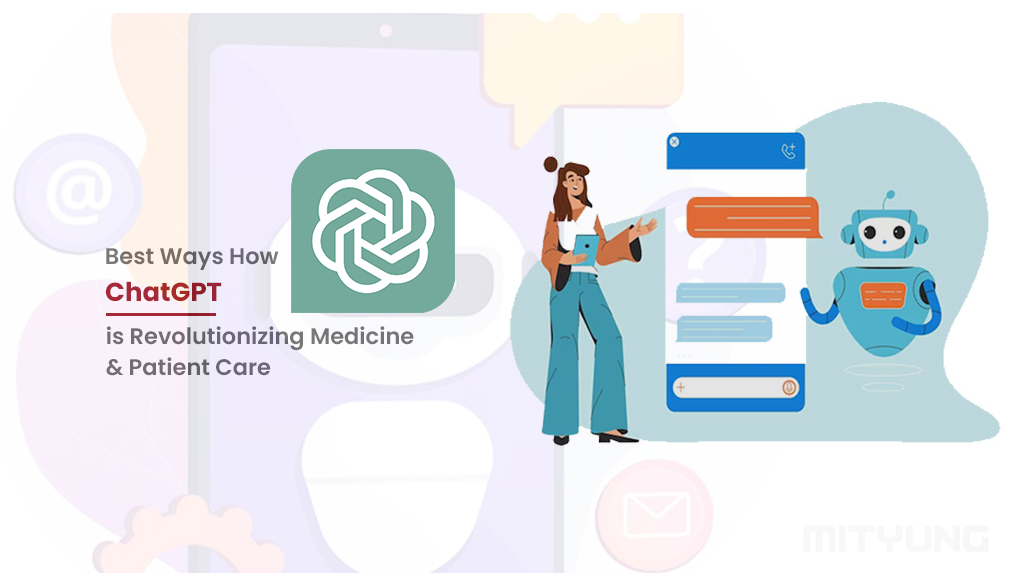Google was the go-to physician a decade ago when people required any kind of medical advice. Of course, it rarely produced accurate findings; some were horrifying while others were incorrect!
In any case, patients did feel in control. The world is changing, and artificial intelligence has had a spectacular, to put it mildly, effect on every industry. With the aid of AI-powered tools, the IT healthcare sector in particular has recently experienced amazing technological advancements; the most notable of these is OpenAI's ChatGPT natural language processing model.
ChatGPT has become a crucial component of healthcare and its applications, from reacting as humans would to various patient inquiries and developing individualized treatment plans to helping surgeons with operations and lowering hospital visits. In this article, we'll examine a few ChatGPT applications in the healthcare it Solution and explain how they've impacted patients’ and physicians’ lives.


Disease Monitoring
Both citizens and medical professionals can monitor worldwide health data, providing real-time insights into potential disease outbreaks and streamlining the response process. Huge quantities of data from numerous sources, including publicly accessible health and news databases, can be analyzed by ChatGPT.
With the analytics, ChatGPT can carefully identify patterns and anomalies that could point to the emergence of a new disease or the potential for a current one to spread. We can rely on ChatGPT to send out automated warnings to the general public, healthcare officials, and healthcare providers to control and prevent the spread of any disease or virus.
Virtual Assistants
This is the most straightforward but laborious job in the healthcare industry. Hospitals can use ChatGPT to create a virtual assistant that helps patients plan appointments and manage information about their general health, such as treatments and medications.
Virtual assistants have become a favorite among patients who prefer to receive treatment without having to leave their homes thanks to the increasing acceptance and effectiveness of telemedicine. In this situation, a virtual assistant powered by ChatGPT is perfect for assisting and guiding patients as they manage their health remotely.
Medical Documentation
Although it may seem unimportant, writing and documenting medical information is a laborious process with no room for mistakes. Writing discharge notes and preserving medical records are examples of documentation. While writing discharge summaries, ChatGPT can also assist by offering real-time ideas and corrections.
Drug Information
When you need more specifics about medications, such as side effects and possible contraindications, you can rely on ChatGPT to assist you. Patients can communicate with a ChatGPT using everyday language and receive timely, precise information.
This can enable patients to make educated choices regarding the medication they should take, its dosage, and storage requirements. It can also provide suggestions for potential substitute medications in the event of any drug allergies. Medical professionals can stay informed about new drugs and other crucial information in the pharmaceutical business with the aid of ChatGPT.
Virtual Symptom Checker
Sometimes it can be scary to seek medical guidance. The majority of patients favor self-examination when the choice between seeing a doctor and doing it themselves is uncertain. For patients who want to first perform a self-examination, comprehend their symptoms, and determine whether or not medical care is necessary, ChatGPT can develop a symptom checker tool.
Virtual symptom checkers give patients the ability to recognize any possible health risks and direct them toward the appropriate next steps, such as over-the-counter drugs or home remedies.
Conclusion
It is crucial for healthcare professionals to understand the value of AI-enabled tools and medical software systems in the modern era when massive amounts of data are produced daily, to remain current with emerging technologies and guarantee a seamless patient experience.



